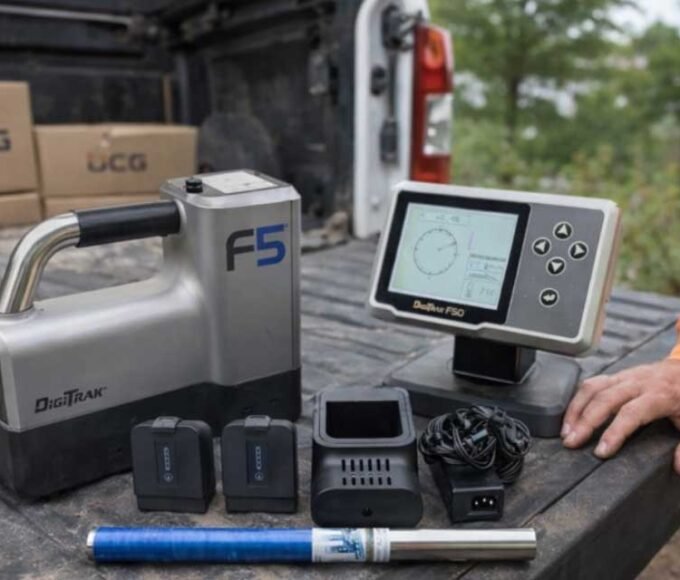The global logistics industry comprises a complex network of interconnected entities, and within this ecosystem, the freight brokerage sector is currently experiencing a significant shift towards digitalization. This transformation involves using advanced technology to improve the efficiency and effectiveness of freight brokerage operations. Specifically, digitalization enables freight brokers to leverage data analytics, artificial intelligence, and machine learning to optimize their decision-making processes, streamline communication and collaboration with carriers, shippers, and other stakeholders, and enhance the overall quality of their services.
Technological Transformation in Freight Brokerage
Technological innovations are at the core of this change, driving the creation of advanced, efficient, and responsive supply chain solutions. As a shining exemplar of this digital progression, platforms like LoadPilot are revolutionizing the industry by offering streamlined online freight management systems. These platforms are becoming vital in optimizing various dimensions of the freight brokerage process, from the allocation of loads to the intricate coordination between shippers, brokers, and carriers. The introduction of technology in the freight brokerage industry serves to adapt to the evolving demands of a market characterized by a need for speed, precision, and integration.
The Core of Modern Freight Brokerage: Technology and Tools
The success of modern freight brokerage increasingly depends on the strategic integration of technology. Various tools are vital to this integration, improving different facets of the brokerage process. These tools include cloud-based Transportation Management Systems (TMS), which skillfully handle logistical complexities, and advanced analytical software that delivers actionable insights. Including freight broker software, digital solutions are moving freight brokerage firms from the analog era to the digital age. Logistics solutions these days come equipped with a wide range of features such as real-time GPS tracking, automated carrier selection and negotiation, route optimization, freight auditing, and seamless communication between stakeholders. By providing detailed visibility into each step of the logistics chain, brokers can offer reliable and timely services, ultimately delivering real value to customers.
Strengthening Broker-Carrier Relationships through Technology
Technology adoption makes the virtual threads that bind brokers and carriers sturdier. Digital platforms facilitate instantaneous and transparent communications, fostering a collaborative environment crucial for the efficient movement of goods. By embracing digital documentation, electronic signatures, and accessible data sharing, these platforms are crafting a new paradigm for interaction—one that is based on mutual efficiency and aligned goals. Technology has dissolved many traditional barriers, fostering relationships between brokers and carriers based on trust, speed, and certainty.
Decision-Making Empowered by Real-Time Data
The importance of real-time data in the freight brokerage industry can hardly be overstated. Decision-making becomes significantly more potent when bolstered by the immediacy and precision of up-to-date information. This real-time insight grants freight brokers the ability to dynamically respond to changing situations, such as fluctuations in demand, unforeseen delays, and even real-time pricing adjustments. By fusing logistic expertise with data-driven strategies, brokers can enrich service quality and preempt potential problems, securing a competitive edge in a fast-paced market.
Addressing Technological Challenges and Security Concerns
Although the migration to technology-centric operations furnishes many advantages, it also surfaces new challenges. Cybersecurity, a resilient IT infrastructure, and compliance with ever-stringent data protection laws are among the hurdles modern freight brokerages must navigate. Vigilance and strategic investments in security frameworks are critical to prevent data breaches and ensure the integrity of digital systems. Firms that proactively address these concerns by instituting robust cybersecurity protocols and investing in employee cybersecurity awareness will stand more robust in the digital landscape, earning trust and securing their client’s cargo and data.
Emerging Technologies and the Future of Freight Brokerage
Technological advancements are driving new possibilities and opportunities in the rapidly evolving world of freight brokerages. As the industry embraces modern technologies, many potential innovations on the horizon could transform how business is done. These include the broader adoption of AI and machine learning for predictive logistics, which can help reduce costs and increase efficiency. Additionally, exploring the potential of blockchain for secure record-keeping can ensure data integrity and provide greater transparency. Meanwhile, advancements in autonomous vehicle technology have the potential to redefine logistical routes and transform the transportation industry. Embracing these up-and-coming trends will be crucial for freight brokerages that want to maintain a competitive edge and achieve operational excellence in a tech-driven future.
Continuous Learning and Training in a High-Tech Industry
The freight brokerage industry’s successful adoption and use of new technologies are closely related to how the industry approaches learning and development. As logistics technology is rapidly evolving, it is now optional but imperative to foster a culture of continuous education and training. Brokerage firms must prioritize upskilling their teams by leveraging online educational platforms and certification programs to nurture an adept and innovative workforce. Investing in training not only ensures the deft use of technology but also empowers employees, encouraging a progressive and forward-thinking organizational culture. Technology is a crucial driver of change in the freight brokerage sector. Brokerages can navigate modern logistics with unprecedented agility by adopting recent technological advancements.
















